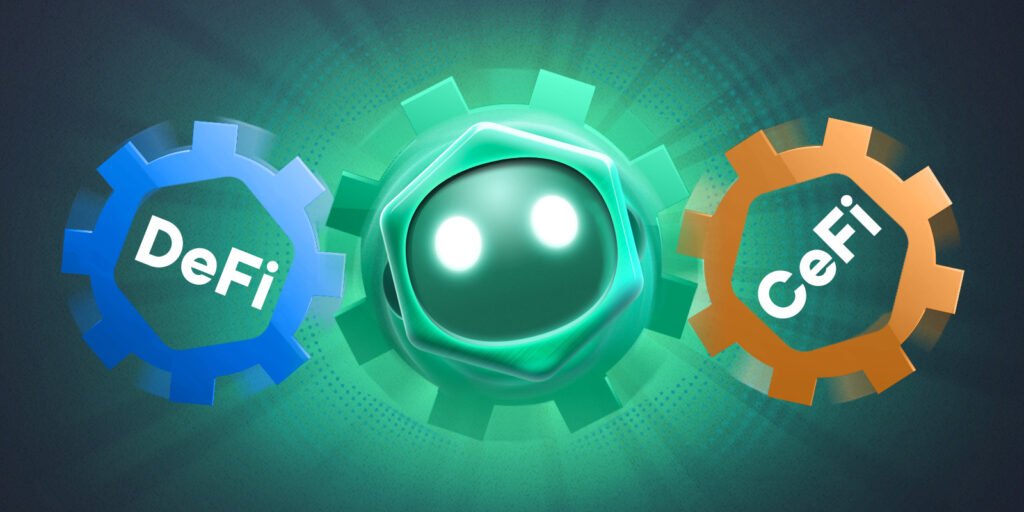Like every Ying, there is a Yang; with every Batman, there is a Joker, and when it comes to Defi, there is his more affable or evil brother (depends how you look at it) Cefi.
Now, what in the world is Cefi or Centralize Finance?
This answer depends on who you ask. So I will go with my definition first.
Centralize Finance is any financial organization that provides financial services. Now the prime example would be your good ole bank or credit union. But let’s make a better definition since we are talking about crypto.
Cefi are financial products via the blockchain that are handled by an organization or a group of individuals.
With crypto, you can’t take anyone’s word for it, so let’s see other definitions.
According to Leeway Hertz: In centralized Finance (Ceci), all crypto trade orders are handled through a central exchange. Funds are managed by specific running the central exchange. It means you don’t own a private key that provides you access to your wallet.
101 blockchain says Cefi. It is an abbreviation for centralized Finance referring to the closed financial markets.
In fact we are more use to Cefi since most of us have a bank account so the same thing would apply to an exchange, protocol, wallets etc.. Anytime you do something in Cefi is controlled and manage by an organization or individual.
One of the main differences in Cefi is that there will be a KYC (Know your customer) process; this is done because mainly if you are looking to buy crypto with fiat money, they will use an external payment processing. Since crypto is a speculative asset, they will need to know who you are and ask you for a driver’s license, passport, and other kinds of photo id.
Cefi protocols can be built on different platforms, and unlike Defi is not dependent on smart contract platforms like ethereum, so the fee may be lower or higher depending on who and what you use. For example, Coinbase and Binance are both exchanges but have different transfer fees and swaps fees, while places like Uniswap will only charge a gas fee depending on the level of volume that is happening at the time.

The biggest thing on Cefi is privacy and security. There is a saying in crypto that says, “Not your keys. Not your coins,” so every time you use a Cefi protocol you have no control of your assets. This means that if the exchange or lending/savings protocol decides to close or gets hacked. You are left high and dry. However, and time progresses, Cefi platforms are beginning to be more secured than Defi. They are trying to get regulated by federal and state governments to get less scrutiny and have more growth potential.
With this, security is also a thing that Cefi products take very seriously. Because they want to comply with regulations, most of these platforms are putting a lot of effort into protecting assets to their customers. Unlike Defi that is still in its infancy and sometimes can look like the “wild wild west” places like Blockfi and Celsius are trying their best not be the next big hack. This is not to say that they could or not get hacked but because it is more controlled and some of their assets are offline or have some regulated insurance.
Now, like everything, this is a highly changing environment, so lots of things could change. In my opinion, Cefi has a better path to the mainstream world than Defi because of the way it’s run; now that does not mean it has its fair share of obstacles, but with companies like Coinbase going public, this is the beginning of crypto finance being established as a legitimate thing. Will Defi ever get there? Well, we will see.



















Leave a Reply